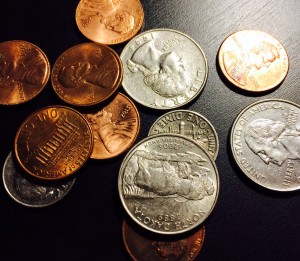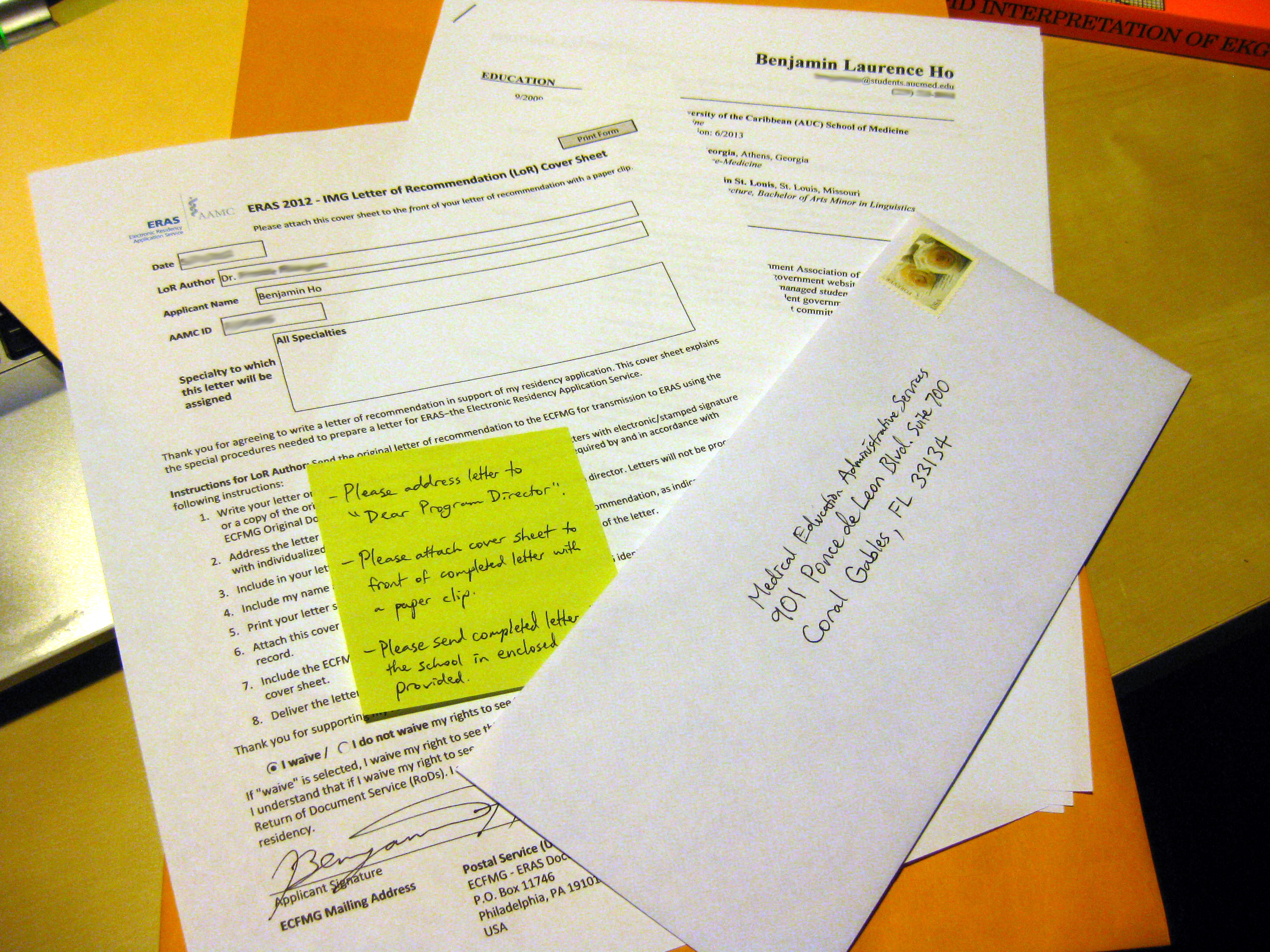Loan Repayment Programs
 Med school is no doubt very expensive, and for international medical graduates like me, living in the Caribbean where cost of living is high and traveling around to different clinical rotation sites does not help the amounting debt that we build up during our training. After four strenuous years, I now have an MD degree, a Dr. in front of my name, an intern position at a hospital, and over $317,000 of increasing med school debt. The only thing I know that is not increasing is the number of strands of hair on my head.
Med school is no doubt very expensive, and for international medical graduates like me, living in the Caribbean where cost of living is high and traveling around to different clinical rotation sites does not help the amounting debt that we build up during our training. After four strenuous years, I now have an MD degree, a Dr. in front of my name, an intern position at a hospital, and over $317,000 of increasing med school debt. The only thing I know that is not increasing is the number of strands of hair on my head.
With my repayment grace period up, and not enough income to pay back with the standard repayment schedule, I immediately chose an income-based repayment schedule, which decreased the amount per month I have to pay to a fraction. Although I’m thankful that repayment is now doable, it’s still not enough to cover the interest, which would capitalize onto my principal over time and continue to increase my debt. My goal during residency is to pay at least the cost of the interest per month to prevent my debt from automatically increasing.
There are also several career paths and programs that family practitioners and other medical specialists can do that can help repay their debts. Here, I’ve compiled a list of some programs that are worth looking into. There are nation-wide programs as well as state-specific programs. I’ve included a Georgia program, because I’ll be practicing in Georgia, but many states have some sort of initiative for new physicians.
1. National Health Service Corps (NHSC)
- Who: Eligible applicants include Family Medicine, General Internal Medicine, General Pediatrics, Ob/Gyn, Geriatrics, Psychiatry physicians who have finished residency who are board-certified and/or state-licensed. PAs, NPs, Dentists, and several other health professionals are also eligible. You apply to the NHSC when you start working at an NHSC-approved medical facility.
- Where: The NHSC will help repay some of your loans if you work at an NHSC-approved medical facility in a Health Professionals Shortage Area (HPSA). If your medical facility is not NHSC-approved but is in an HPSA, you can apply for NHSC approval.
- What: If working 2 years full-time in an HPSA with score 14 or more, NHSC will help repay $50,000 of your loans. If working 2 years full-time in an HPSA with score less than 14, NHSC will help repay $30,000. If working 2 years half-time in an HPSA with score 14 or more, NHSC will help repay $25,000. If working 2 years half-time in an HPSA with score less than 14, NHSC will help repay $15,000. Loans that the NHSC are willing to help you repay include any federal or private loans that you have taken out and have not repaid yet. They will not help repay Parent PLUS loans or loans that you have already paid back. If you don’t follow through on the commitment, there will be monetary penalties, often more than the repayment amount.
2. Public Service Loan Forgiveness
- Who: Anyone working full-time for a public service organization. This isn’t just limited to health care professionals but also teachers, public safety officers, military workers, librarians, and law enforcers.
- Where: The loan forgiveness applies if you work for a public service organization, including those on a federal, state, local, or tribal level. It could also apply if you work for a non-profit, tax-exempt organization under section 501(c)(3) of the Internal Revenue Code. Labor Unions and Partisan political organizations do not count.
- What: Technically this is a loan forgiveness program rather than a loan repayment program, meaning that instead of the government helping you pay your loans, they’ll just forget about it after you fulfill your committment. If you work at least 30 hours per week for 10 years, the government will forgive your loans after 10 years, and whatever you still owe will not be counted as taxable income.
3. Georgia Physicians for Rural Areas Assistance Program
- Who: Eligible applicants include Family Medicine, General Internal Medicine, General Pediatrics, Ob/Gyn, Geriatrics, Psychiatry physicians who have finished residency and licensed to practice in the state of Georgia. The physician must accept and treat Medicaid patients.
- Where: The assistance program applies if you work in a medical facility, hospital or private practice, in a Georgia county with a population of less than 35,000.
- What: The Georgia Board of Physician Workforce (GBPW) will repay $25,000 of your student loans each year, for up to 4 years max (or $100,000). You must work at least 40 hours per week, and must work completely in a county of less than 35,000 in population.
4. National Institutes of Health (NIH) Loan Repayment Program
- Who: Scientists, Researchers, Physicians, and any other health professionals who have doctoral degrees. You don’t need an NIH grant to be eligible for the NIH Loan Repayment Program. For applicants with MD and DO degrees, I didn’t see anything about needing to have gone through residency to be eligible. Correct me if it is otherwise.
- Where: The repayment program applies if you do research with either the NIH or at a domestic non-profit research institute.
- What: The NIH will repay you up to $35,000 per year on your loans if you commit to do research for at least 2-3 years (depending on the type of research), with minimum 20 hours per week. The types of research that apply include: AIDS research, clinical research, pediatrics research, health disparities research, contraception and infertility research, and research on individuals from disadvantaged backgrounds. Loans that the NIH are willing to help you repay include any federal or private loans that you have taken out and have not repaid yet (Parent PLUS loans do not count).
5. U.S. Navy Health Professions Loan Repayment Program
- Who: You can apply for the repayment program if you are in your final year of residency as an MD, DO, or dentist. For physicians, you must be a graduate of an LCME or AOA accredited medical school (so unfortunately IMGs cannot apply).
- Where: You must serve at least 2 years in active duty (not reserve duty) to have repayment for one year.
- What: The maximum amount the navy will help you repay your loans is $40,000 minus 25% federal income tax. Not that great of a deal in my opinion.














Does time in residency count toward the loan repayment?
You start repaying loans during residency because you start working and making money. Years you pay off loans during residency count towards those repayment years.
Hi Benji!
First of all I just wanted to say that I really enjoy your blog and I’ve found it to be extremely helpful!
I’ve been meaning to ask you how you borrowed so much money for medical school if you don’t mind answering. Did you use the Direct PLUS Loan after exhausting the Direct Unsubsidized Loans? I am afraid of using the PLUS loans because I don’t want to burden my parents as it says it would become their responsibility to repay the loan they help me take out.
Thanks in advance 🙂
I used the PLUS loan. I was able to borrow all the money I needed for med school. I don’t recall ever putting in my parents information since it is not the same as a Parent PLUS loan. There was no burden on my parents.
Hi Benji
Thanks for this informative piece, as a future physician looking at medical school I want to know if you can do multiple of these repayment options. For example do the NIH research loan repayment for 2 ears during residency and then do the Georgia repayment option or another option. How are you planning to use these options?
Hi Alex – Each loan repayment program has very specific criteria as to who is eligible and who is not. I would read their websites very carefully. I am doing the public service loan forgiveness program. You just have to consistently pay your required loans on time every month for ten years while working full-time for a non-profit hospital or clinic, and the government will forgive your loan after ten years.
Good evening,
Mr Benji,
First of all I want to thank you for this wonderful & easily managable blog.
Currently, I am 2nd year Pharmacy student in the Czech Republic. But, I had a dream to study medicine in USA, during my research I found out, that the system of education is totally different and moreover the cost of school is really expensive for international students. That’s why Ive chosen studying pharmacy in Europe for reasonable price then. But, luckily i can get permanent residentship soon in USA. Thats why I want to take my chance and apply to med.school. My question is that, is it possible to cover fully all payments for school via taking loans? Which type of loans will you advise? Also, as you know they require pre-requisite courses from Chemistry etc. But the fact is that, I already took this subjects at my Pharmacy school, such as Organic, Biology, Genetics, Physics,Biochemistry etc. Will they recognise my credits from European university?
Hope I didnt scare you too much with all this stuff.
Best regards.
Hi Shahlo, if you hold a green card, you should be able to get US Federal Student Loans per their website https://studentaid.ed.gov/sa/eligibility/non-us-citizens. Federal student loans more than covers what you need to pay for med school, at least it did for me.
In terms of whether or not your prerequisites will be accepted, it depends on the school. AUC will accept credit from any accredited school. We have students who came from Canada, so they definitely do consider undergraduate work done in non-US countries.
Medical school is super expensive. Be sure that this is really what you want to do and that you have the discipline to work hard and complete med school successfully. Because, if you fail out or drop out, you’ll have a lot of debt to pay off without having a doctor job.
Best of luck.
Hi Benji,
I was wondering what are some examples of job opportunities that are considered under “public service opportunities” for physicians?
Thanks
Hi Jaimi, Any physician job at a public or non-profit hospital would be considered “public service.”
Hi there, I’ve been looking into the caribbean schools and not sure how it will go for me. I am a nontrad, I used loans for my BS and MS already, so Im sitting on that loan while I take my prereqs for med school. Im not sure what the options are for me. I looked into the Health service corp and military scholarship but It is unclear if they cover these schools.
Hi Benji! Thanks for your post. it was very helpful. For the NHSC loan repayment is that before residency or after residency if you work in an underserved neighborhood for the period of 2-3 years.
Thanks
It’s after residency.